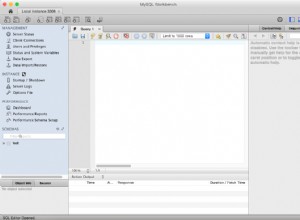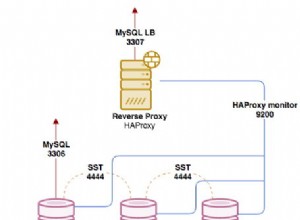No existen soluciones simples basadas en plpgsql. Algunas posibles soluciones:
- Utilizando
hstoreextensión.
CREATE TYPE footype AS (a int, b int, c int);
postgres=# select row(10,20,30);
row
------------
(10,20,30)
(1 row)
postgres=# select row(10,20,30)::footype #= 'b=>100';
?column?
-------------
(10,100,30)
(1 row)
hstore función basada puede ser muy simple:
create or replace function update_fields(r anyelement,
variadic changes text[])
returns anyelement as $$
select $1 #= hstore($2);
$$ language sql;
postgres=# select *
from update_fields(row(10,20,30)::footype,
'b', '1000', 'c', '800');
a | b | c
----+------+-----
10 | 1000 | 800
(1 row)
- Hace algunos años escribí una extensión pl toolbox
. Hay una función
record_set_fields:
pavel=# select * from pst.record_expand(pst.record_set_fields(row(10,20),'f1',33)); name | value | typ ------+-------+--------- f1 | 33 | integer f2 | 20 | integer (2 rows)
Probablemente pueda encontrar algunas soluciones solo de plpgsql basadas en algunos trucos con tablas y matrices del sistema como esto
, pero no puedo sugerirlo. Es demasiado menos legible y para usuarios no avanzados solo magia negra. hstore es simple y casi en todas partes, por lo que debe ser la forma preferida.
En PostgreSQL 9.4 (quizás 9.3) puede intentar hacer magia negra con manipulaciones JSON:
postgres=# select json_populate_record(NULL::footype, jo)
from (select json_object(array_agg(key),
array_agg(case key when 'b'
then 1000::text
else value
end)) jo
from json_each_text(row_to_json(row(10,20,30)::footype))) x;
json_populate_record
----------------------
(10,1000,30)
(1 row)
Entonces puedo escribir la función:
CREATE OR REPLACE FUNCTION public.update_field(r anyelement,
fn text, val text,
OUT result anyelement)
RETURNS anyelement
LANGUAGE plpgsql
AS $function$
declare jo json;
begin
jo := (select json_object(array_agg(key),
array_agg(case key when 'b' then val
else value end))
from json_each_text(row_to_json(r)));
result := json_populate_record(r, jo);
end;
$function$
postgres=# select * from update_field(row(10,20,30)::footype, 'b', '1000');
a | b | c
----+------+----
10 | 1000 | 30
(1 row)
La función basada en JSON no debería ser terriblemente rápida. hstore debería ser más rápido.




